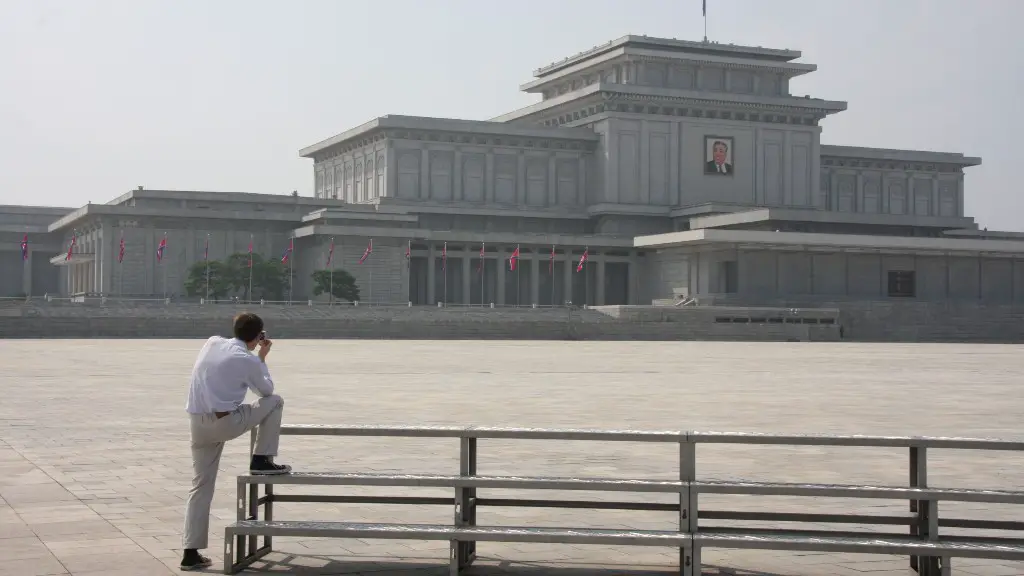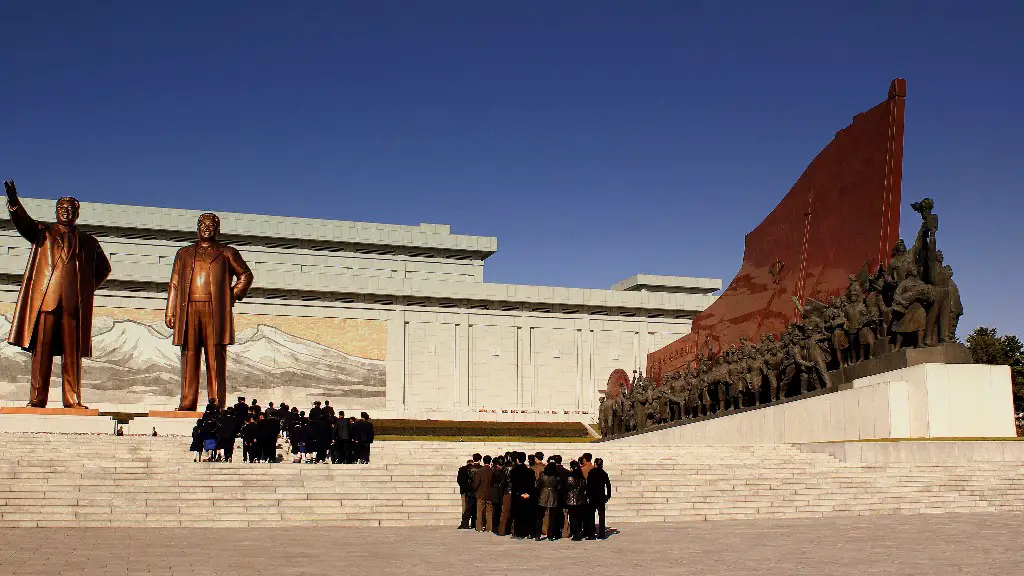Nuclear Threats by North Korea
North Korea has been a continual source of concern in the international community since the Korean War. It has long since been a nuclear threat and is not afraid to wield its weapons. North Korea has been particularly hostile and unpredictable for years, leaving many governments and independent analysts to wonder which state would be the most likely target if North Korea were to launch a nuclear attack.
The Potential Targets
Based on previous North Korean rhetoric and actions, many nations have become concerned about the potential for an attack. Potential targets include America, Japan, China, and South Korea. Any of these states represent possible targets for North Korea, and each have their own potential risks and ramifications from a nuclear attack.
Some analysts suggest that America is the country that is most at risk of being hit by North Korea’s nuclear programme. America has been a target of North Korea’s rhetoric for years and the two countries have a strained history, making it more likely than other nations to be hit by a nuclear weapon. Moreover, America is seen by North Korea to be the leader of many of the economic sanctions that are being imposed against it, which is a point of real contention between the two countries.
However, countries closer to North Korea may also be at greater risk of being targeted. Japan and South Korea have closer geographical proximity than the US and have hosted US military presence for years. These countries have arguably been targeted more often by North Korea than America, leaving them especially vulnerable to a nuclear strike.
Economic Impact of a Nuclear Attack
A nuclear attack on any state would have serious economic consequences. An attack on America, for example, could come with drastic economic losses and lead to a severe decline in confidence among global investors. Many of the world’s stock markets, including Tokyo, are heavily tied to the US economy and could plummet if a nuclear attack were to occur.
Additionally, a nuclear attack on any of the targeted states could cause a ripple effect of disruption across the global economy. According to some estimates, an attack on America could cause an immediate decline in world GDP by 25%, triggering long-term economic fallout for multiple countries.
Military Response
Since North Korea has a history of aggression, any potential nuclear attack by them may be met with a proportional military response. For example, the US has a powerful military presence in the region and could deploy troops to the Korean peninsula in the event of a nuclear attack. Moreover, the US has powerful allies, such as Japan and South Korea, who also have the capability to respond to a nuclear attack.
Political Repercussions
If North Korea were to launch a nuclear attack, the geopolitical ramifications would be severe. Other states in the region may become embroiled in a conflict as a result, leading to further economic and political instability.
Preparing for the Worst
Given the potential consequences of a nuclear attack, it is important that the international community takes steps to prepare. Many governments are taking initiatives towards increasing our readiness in the event of an attack, such as stockpiling supplies and preparing emergency response plans. Moreover, it is essential for countries to take diplomatic measures to further reduce the risk of a nuclear attack. The UN has been at the forefront of encouraging dialogue between North Korea and other states in the region, with the hope of de-escalating the situation and preventing a nuclear attack from occurring.
International Sanctions and Pressures
The international community has been putting a range of sanctions and pressures on North Korea in recent years in order to try to curb the development of their nuclear weapons programme. These sanctions, such as restricting the sale of goods and services, have been seen as an effective way to limit the resources available to the North Korean government.
Furthermore, the US government has implemented a range of unilateral sanctions against North Korea, as well as actively encouraging other countries to follow suit. These sanctions have been seen as an effective way to disrupt North Korea’s nuclear ambitions and stop them from further developing their weapons programme.
Entering a New Arms Race
With the increasing pressure from the international community, North Korea has seemingly opted for a different approach with their nuclear programme. Rather than slowing down their development of new weapons, many experts suggest that they have entered a new arms race and are continuously testing and developing new advancements in their weapons programme.
This new arms race is worrying for many in the world and has led to the international community to take a tougher stance towards North Korea, in the hopes of preventing them from launching a nuclear attack.
Addressing the Underlying Issues
While international sanctions and pressures are useful in curbing North Korea’s nuclear ambitions, many believe that the only way to truly prevent a nuclear attack is to address the underlying issues that are leading to the tension.
The grievances felt by North Korea have been seen as a major factor in driving their aerospace programme, and these need to be addressed in order to prevent any further escalation. One of the key resolutions for this issue has been for North Korea to directly engage in dialogue with other countries and the international community, as well as dismantling their nuclear weapons programme.
Pressures of Time
The time pressures of North Korea’s nuclear development has further exacerbated the situation and put heightened levels of tension on the international community. With North Korea continuing to develop their weapons programme and make advances in the aerospace sector, there is a strong need for the international community to take urgent action.
Unfortunately, many of the measures proposed by the UN and other governments have been met with defiance by North Korea, leading to an impasse in the negotiations. With no clear resolution to the current tensions in sight, the fate of the entire region remains in limbo.
Preventative Measures
Experts agree that the best way to prevent a nuclear attack is to take preventative measures. This includes diplomatic initiatives that seek to de-escalate the situation and encourage dialogue between North Korea and other countries in the region. Moreover, it is essential for the international community to continue to put pressure on North Korea and ensure that the sanctions and restrictions are continuously enforced.
In addition, the potential for a nuclear attack is not just limited to North Korea. The threat of other countries developing nuclear weapons, such as Iran, is also of great concern. To this end, the UN and other diplomatic initiatives need to continue to focus on preventing other nations from creating their own weapons programmes and contribute to a safer and more secure world.


